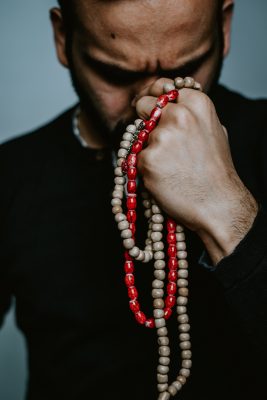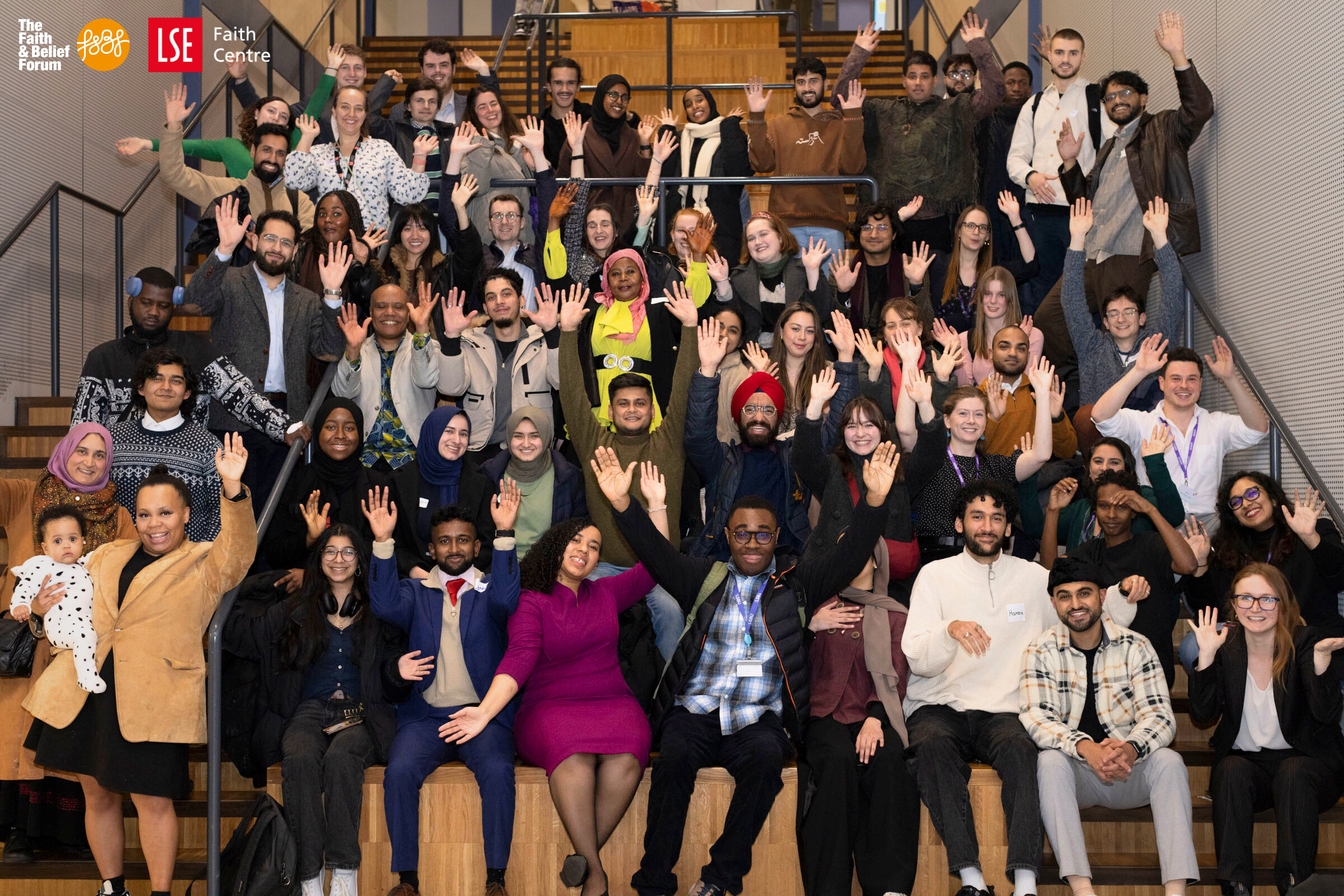
Statement on Hate Crime in UK – 19th February 2024
19 / 02 / 24
Menu

03 / 09 / 21

By Raahim Zafar
Earlier this week I had a discussion with someone about using the word “sin.” It is typically understood in a very negative, shame-inducing manner, and is not the kind of thing you would have a conversation about with your colleagues.
While thinking about it later, I remembered an event I had attended at university with the Coexistence Initiative where we discussed ideas of purity, specifically “purity culture.” A lot of that discussion was news to me because it just wasn’t something I had been raised around in the same way as others clearly had. While recognising the endemic challenges many communities and individuals face where “sin” and “purity” are regularly used to shame and manipulate others, there is another way of looking at them.
In so many of the problems that I’ve faced myself and seen others faced with, I have often found that misunderstandings of language are at the root. It’s partly because I love studying languages and doing so has really geared my mind to think about what words really mean and how one person might understand something slightly differently to another which – if not picked up early- can grow into a much bigger problem. Too often also, I have found we, as human beings, miscommunicate because we aren’t able to find the right words to explain what we think and how we feel. Likewise, if we look at it from the opposite angle, the way we understand words affects how we think and then how we use them to communicate. My contention is simple: we should re-evaluate how we understand the word “sin.”
The etymology (origins of a word) of “sin,” takes us back to the world of archery. It means when you “miss the mark.” This opens up a world of meaning and takes us beyond a simple understanding of “a sin is when you do something bad.” Remarkably, one of the words that is often translated as “sin” from Arabic, Khatiya, has the exact same root meaning:when you are shooting with a bow and arrow and you don’t hit the thing for which you were aiming.
The Quran and other Islamic literature use plenty of words which have at some point been translated as “sin,” but each of them has a precise meaning of its own from “extravagance/excess,” to “the ugly thing,” to “that thing which has negative consequences that follow you around.” Each of those has its own unique implications, gives us a new lens through which to understand and explore what we can broadly categorise as “wrongdoing,” and develop a nuanced and holistic understanding of the nature of human activity on earth. But let’s focus on Khatiya for now; missing the mark.
If we understand that sin as “missing the mark” we can derive that 1) There is something for which we are aiming, 2) Our actions are the thing that affect us getting there and 3) There are certain actions that help us get there and others that take us away. This seems fairly obvious, but it’s not the first thing that I, at least, used to think of when I heard the word “sin.” In fact, consciously striving to understand sin in this manner allows those of faith to remain consistently present in our conception of our ultimate purpose as human beings on earth (or, if you want to be fancy, grounded in the metaphysical quiddity of human existence). Which brings us to purity.
A number of verses in the Quran and narrations of the Prophet Muhammad (pbuh) talk about the heart of a person. The Qalb, as it is called in Arabic, literally means “the thing that turns” and Islamic literature indicates it has a reality beyond the physical piece of flesh that beats in our chests. The spiritual heart is actually, arguably, the central focus of the message of the Quran, the sayings of the Prophet, and Islamic discourse more broadly. Purifying the heart and meeting God “with a clean heart” one day are the ultimate goal (Quran, 26:89).
A well known narration of the Prophet Muhammad (pbuh) says: “Verily, when the servant commits a sin, a black mark appears upon his heart. If he abandons the sin, seeks forgiveness, and repents, then his heart will be polished. If he returns to the sin, the blackness will be increased until it overcomes his heart. ‘It is the covering that Allah has mentioned (in the Quran): No, rather a covering is over their hearts from what they have earned.’ (83:14)”
In fact, if we look at the Arabic more closely, the word that above is translated as “covering” can also be understood to be “rust.” Ironically, this morning I snapped something that had rusted a lot while trying to bend and turn it. Just like that piece of metal, the spiritual heart can become rusted by consistently doing things that aren’t in line with what keep it spiritually sound; and when it becomes rusted, it becomes harder for it to turn and face God. Another parallel is the human body: if you don’t treat it well by eating healthily and exercising regularly it will begin to lose its maximum functionality and you will start to become sick. The heart is no different and there are whole treatises that have been written about “Diseases of the Heart” like envy and hypocrisy.
The spiritual heart, ultimately, is the seat of the intellect in the Islamic worldview. Going beyond just the intellect and rationality however, there is a deeper experience through intimate presence that the heart, if pure enough, is able to behold – and those inexplicable, indescribable moments are the spiritual experiences that mystics have often expressed in their poetry. In short, sin impedes the heart’s ability to accomplish what it was created by God to do: to experience Him and all His beauty, wonders, magnificence and love.
Of course, just because you’ve missed the mark once, twice, or a thousand thousand times, that doesn’t mean that is the end. Keeping in line with the etymological theme of the day, the Arabic word for repentance, Tawbah, literally just means to “turn back.” A related word, Inabah, means to turn back again and again because, by nature as human beings we make mistakes, we fall short, we miss the mark.

Those who perform Tawbah by simply being humble and accepting “Yeah, God, I messed up, I’m sorry...” or swallowing their ego and apologising to the person they wronged, in a tradition of the Prophet “are [just] like those who have never sinned” and in another tradition, Muslims are taught that even just feeling regret in itself is tawbah. Ultimately, Islam seeks to stifle the ego, the arrogant self and make us into humble, loving human beings reflecting God’s all encompassing mercy wherever we go (side note: rust doesn’t reflect light very well, but polished metal does – but that’s beyond the scope of this already very long blog).
The Tawbah of a person means that any spiritual blockages- rust, sickness and other- that may have gather in the Qalb are removed, they are purified, and the individual is no longer blameworthy before God or humans. Even if someone else doesn’t know that a person who sinned has now done tawbah, Prophetic etiquette teaches us we should assume they have done so in secret or that God has forgiven them anyway, leaving absolutely no room to shame people for something they did yesterday – never mind years ago.
So the journey to God, in how I’ve understood Islam, isn’t as arduous as popular conceptions of “sin” in some Muslim communities (and non-Muslim ones) might make it out to be. God isn’t out to punish, he’s just waiting for an excuse to forgive – even if it wasn’t necessarily your intention. The only difficult part is accepting we’ve made a mistake, and then the rest is on God to to purify the hearts and remove the rust. In fact, in a famous saying, it is a promise that He has made to forgive (which is a word with a really interesting linguistic meaning itself!) because no matter how bad you think you are, even if your sins reach the skies, God’s mercy is greater.
Just like if you were teaching a child archery and they missed the target, you wouldn’t scold them and tell them they’re a terrible person and you’ll never love them. Rather, you would comfort them and say “Hey, it’s okay kid, let’s try again- try it this way this time.” Just multiply that my infinity to get a little taste of divine love.
Perhaps it’s time we all started adopting more of that approach with our fellow human beings.

19 / 02 / 24

16 / 02 / 24

16 / 02 / 24